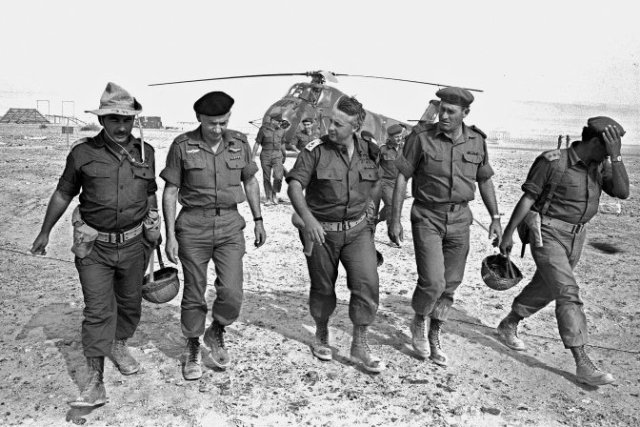
War criminal and former Israeli prime minister Ariel Sharon, who died on January 11, led an infamous Israeli army terror group in the 1950s. Called Unit 101 and nicknamed the “avengers”, it operated without uniforms.
The unit countered Palestinian resistance with terror attacks. It carried out many outrages inside Israel and across its borders.
In August 1953, Unit 101 attacked the refugee camp of El-Bureig in Gaza. About 50 refugees were massacred. In October 1953, Sharon’s unit attacked the Jordanian village of Qibya.
Israeli historian Avi Shlaim wrote: “Sharon’s orders were to penetrate Qibya, blow up houses and inflict heavy casualties on its inhabitants. The village had been reduced to rubble: forty-five houses had been blown up and sixty-nine civilians, two thirds of them women and children, had been killed.”
Sharon later claimed he did not know the buildings were occupied. Israel’s then foreign minister, Moshe Sharett said: “This stain (Qibya) will stick to us and will not be washed away for many years to come.”
Between February 1955 and October 1956, Sharon led a paratroop brigade in similar cross-border raids in Gaza and the West Bank. In the West Bank village of Qalqilya, Sharon’s squad killed 83 people.
In 1967, Sharon was given the task of pacifying the Palestinian resistance in the Israeli occupied Gaza Strip. He undertook a policy of brutal repression ― blowing up houses, bulldozing large tracts of refugee camps, imposing severe collective punishments and jailing hundreds of young Palestinians. Many Palestinians were killed.
In 1971, Sharon commanded troops in a bid to pacify the restive Gaza Strip. About 2000 houses were destroyed, leaving more than 16,000 people homeless. Hundreds of young Palestinian men were arrested and many deported to Lebanon and Jordan. More than 100 Palestinians were killed.
Sharon entered politics and was elected to parliament for Likud in 1973. He served as minister of agriculture and settlements. He became the champion and architect for expanded Jewish colonies on the West Bank, creating an Israeli settlement boom.
In 1981, Sharon was appointed defence minister. Sharon sought to crush Palestinian resistance in Lebanon. Israel also wanted the Palestinian refugees in Lebanon scattered among other more distant Arab countries as a part of a solution to the “Palestinian problem”.
Israel had long supported, trained and supplied the Phalange Party, a Lebanese fascist militia group founded in 1936 and modeled on the Nazi Party of Germany. In early 1982, Sharon visited them to coordinate plans for an Israeli invasion.
The Israeli invasion began in early June. There was huge destruction and nearly half a million people were made homeless. Within a week, the Israeli army had laid siege to Beirut, but could not break its defences.
By the end of July, the Lebanese government, church and aid agencies said at least 14,000 people had been killed and twice that number seriously wounded. More than 90% of those killed were civilians.
After three months of warfare an agreement was reached to end the fighting. The terms of the agreement were that the Palestinian forces would withdraw from Beirut and the US would guarantee the safety and security of the Palestinian and Lebanese civilian population, and Israel would not enter Beirut.
The last contingent of Palestinian defenders left the city on September 1, 1982. On September 15, the Israeli army entered the city and the US did nothing.
After surrounding the Palestinian refugee camps of Sabra and Shatila, the Israeli army allowed a force of 150 Phalangists into the camps. The massacre of Palestinian and Lebanese civilians began, many tortured and raped before being murdered.
It is estimated that at least 2000 people were killed during the two days of mass killings.
After an international outcry, Israel held an inquiry. Despite some parts of the commission’s report being kept secret, it was a damning indictment of Sharon.
The commission’s report said Sharon had received Israeli intelligence warnings that there were no armed Palestinian fighters in the camps and that the Phalange might go on a rampage if allowed in.
In part, the report said: “In our view, even without such a warning, it is impossible to justify the Minister of Defence’s disregard of the danger of the massacre.”
In 1983, Sharon resigned as defence minister. In 1996, he returned to politics and, his blatant complicity in horrific massacres notwithstanding, became prime minister in 2001.
